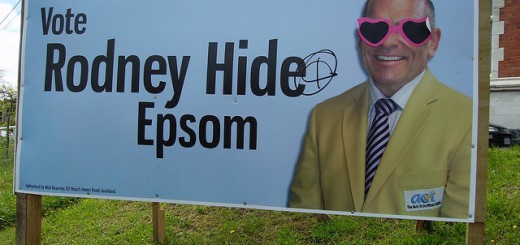How accurate are ACT’s poll ratings? Part 1
Putting this in context for his audience, von Marschall related the Bradley effect to German opinion polls for state elections. These frequently underestimate the support for neo-Nazi parties of the extreme right, such as the National Democratic Party of Germany (NPD), which is represented in state parliaments of several states in Germany’s east. The likely explanation for this occurence is that respondents do not want to admit to the telephonist that they support parties which are seen as distasteful and untouchable by many voters (and indeed, all other political parties). (Note that this is actually the Bradley effect in reverse: it implies that polls overestimate support, while the “NPD effect” implies support is underestimated).
I am not suggesting that ACT is directly comparable to extreme-right parties such as the NPD, which promotes overt racism and is described by intelligence agencies as a “threat to constitutional order“. However, ACT still carries a lot of baggage: whenever I told friends and colleagues last year that my research was on the party, I almost always received sideways looks in return – at a minimum. Sometimes, the reaction even went as far as the use of certain words not suitable for printing here. Is there a stigma to voting ACT which prevents prospective voters from admitting their preference for the party?
Moreover, ACT supporters have often claimed their party is unfairly written off by commentators and polling does not reflect the level of true support. For example, one supporter recently commented on this blog:
Firstly, ACT’s party vote will increase in Epsom undoubtedly due to the inevitability of Hide retaining the seat. This will occur to a lesser extent around the country and hence ACT will (as per usual) poll higher than the polls suggest. [Emphasis added]
A concrete example of a misleading poll was the TVNZ poll in Epsom in 2005 which showed Hide as losing the seat to Richard Worth, when in actual fact Hide went on to win the seat by a considerable margin. Hide still enjoys reminding voters and supporters of his electorate victory three years ago: “[o]n election night 2005 I was elected MP for Epsom. It was against the odds. It was against all predictions”. These comments lend some partisan weight to the theory that ACT is not picked up accurately in opinion polling.
Is support for ACT underestimated in opinion polling compared to election day? One way of testing this would be to look at polling for ACT immediately prior to previous elections and see how close they were to the actual result on election day. This is what I will do in the next post.
